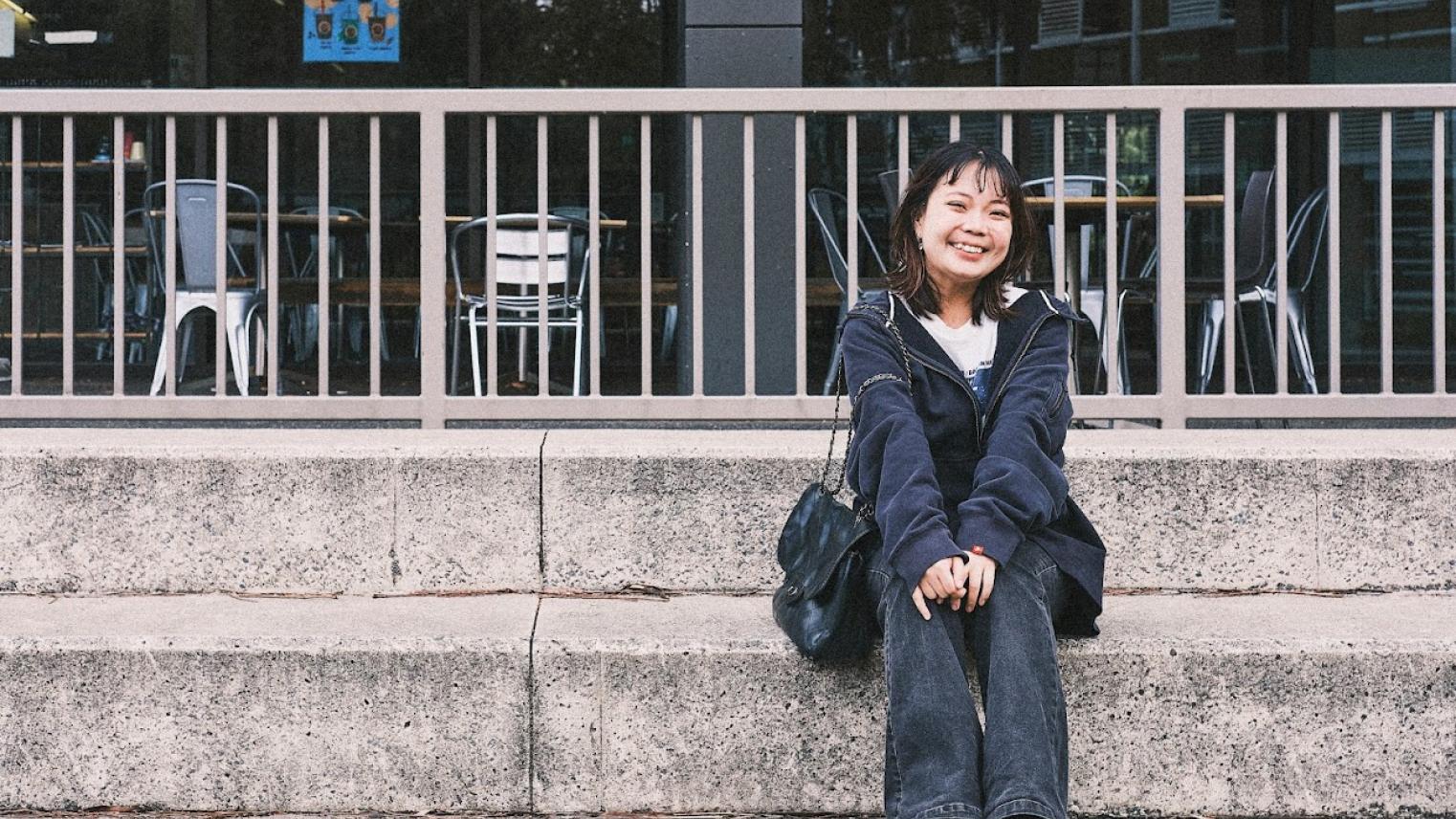Meet Monica Sandei Teramoto: Exchange Student from Ritsumeikan University and CHL student of Culture and Modernity in Asia: Anthropological Perspectives

“My professor told me once if you’re the smartest person in the room, it’s not the right place for you. She inspired me to pursue further studies in Asian postcolonial history. I’m an exchange student from Japan – Ritsumeikan University. In Japan, there’s this stereotype that once you graduate you need to go and join the workforce. That expectation is very, very strong. It’s a fixed ideology. To be encouraged to pursue postgraduate studies, to be encouraged to study at the ANU, which was very new to me.”
Monica, who has studied Culture and Modernity in Asia: Anthropological Perspectives at CHL, was born and raised in Brisbane until eighth grade, and from ninth grade she went to an international Japanese school. Basically an American school in Japan. She would only study European history, the French Revolution, and hegemonic international relations like US-China relations. Monica recalls that it was very repetitive.
For Monica, what has really worked at ANU is the way it places itself in the Asia Pacific. There are a lot of obvious western influences here, but even though you’re studying in an English country, it’s still so multicultural. Australia has so much diversity that you can’t really experience being in Japan.
“There’s a really powerful recognition that Australia itself is a settler-colony that benefits from US hegemony, and I think that inspires the ANU narrative of Asia as rich in personality, with these diverse dimensions that set it apart.” Monica adds, “You can’t just say “Asia and the Pacific” – the ANU sees the region as different sets of people, different sets of nations and nation states. I think that’s what makes the ANU very unique.”
Monica has never lived in or visited Korea, but her grandparents are buried on Jeju Island. And even though she knows all these different things about all these cultures, they don’t really settle with her.
To Monica, though, home is merely a location and also really a mindset. She looks at both Australia and Japan as an outsider. “You mimic these different cultural ideas, you act extra Japanese or Western just because that’s what is expected sometimes. Naturally, you’ll be blending in the two. I don’t want to make any conclusion to this though. I want to keep on changing.”
She still finds herself thinking she is Japanese, but at the same time, she has set herself in Australia, has an American accent, and is a Zainichi Korean! “I’m the in-between of everything. I’m neither Australian, American nor Korean. I think I have my own unique identity of cultural mimicry.”
Zainichi translates to ‘Korean people in Japan’. Really, it manifests as something like the ‘others’ in Japan. My father’s family came to Japan during the Korean War. Dad was born and raised in Japan, but he didn’t speak Korean and never went to a Korean school. He thinks of himself as Japanese.
This featured interview is thanks to an ongoing collaboration with student, photographer and storyteller Oskah Dunnin from the Master of Asian and Pacific Studies at the ANU School of Culture, History & Language.
If you are a student, staff or academic at CHL and would like to be featured in an upcoming interview, please check out this link https://forms.gle/2gW9Ct71xaXbeYN59.